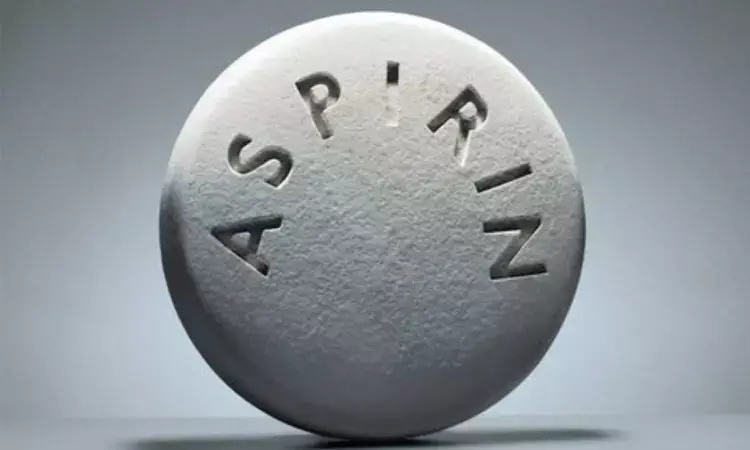- Home
- Medical news & Guidelines
- Anesthesiology
- Cardiology and CTVS
- Critical Care
- Dentistry
- Dermatology
- Diabetes and Endocrinology
- ENT
- Gastroenterology
- Medicine
- Nephrology
- Neurology
- Obstretics-Gynaecology
- Oncology
- Ophthalmology
- Orthopaedics
- Pediatrics-Neonatology
- Psychiatry
- Pulmonology
- Radiology
- Surgery
- Urology
- Laboratory Medicine
- Diet
- Nursing
- Paramedical
- Physiotherapy
- Health news
- Fact Check
- Bone Health Fact Check
- Brain Health Fact Check
- Cancer Related Fact Check
- Child Care Fact Check
- Dental and oral health fact check
- Diabetes and metabolic health fact check
- Diet and Nutrition Fact Check
- Eye and ENT Care Fact Check
- Fitness fact check
- Gut health fact check
- Heart health fact check
- Kidney health fact check
- Medical education fact check
- Men's health fact check
- Respiratory fact check
- Skin and hair care fact check
- Vaccine and Immunization fact check
- Women's health fact check
- AYUSH
- State News
- Andaman and Nicobar Islands
- Andhra Pradesh
- Arunachal Pradesh
- Assam
- Bihar
- Chandigarh
- Chattisgarh
- Dadra and Nagar Haveli
- Daman and Diu
- Delhi
- Goa
- Gujarat
- Haryana
- Himachal Pradesh
- Jammu & Kashmir
- Jharkhand
- Karnataka
- Kerala
- Ladakh
- Lakshadweep
- Madhya Pradesh
- Maharashtra
- Manipur
- Meghalaya
- Mizoram
- Nagaland
- Odisha
- Puducherry
- Punjab
- Rajasthan
- Sikkim
- Tamil Nadu
- Telangana
- Tripura
- Uttar Pradesh
- Uttrakhand
- West Bengal
- Medical Education
- Industry
Aspirin may Reduce Pancreatic Cancer Risk in Type 2 Diabetes Patients, finds study

Researchers have indicated that aspirin may be an effective preventive strategy against pancreatic cancer (PC) in patients suffering from type 2 diabetes mellitus (T2DM). A recent study was conducted by Jing T. and colleagues in Hong Kong which was published in the journal Gut.
This retrospective study used data from 343,966 newly diagnosed adult T2DM patients in Hong Kong between 2001 and 2015. Excluded were patients with prior PC, pancreatic cysts, IgG4 disease, or pancreatectomy, as well as those diagnosed with PC within one year of T2DM diagnosis to account for reverse causality. Aspirin use was treated as a time-varying variable to avoid immortal-time bias, defined as ≥180 days of use per year. The study used a multivariable Cox regression model and propensity-score matching to explore the effects of aspirin on risk of PC as well as PC-specific mortality.
Key findings
Pancreatic Cancer Incidence
• Of patients included in this cohort, 1,224 (0.36%) were diagnosed with PC during the follow-up period.
Risk of PC was significantly lower for aspirin use:
• Time-varying effect: aHR was 0.58 (95% CI 0.49 to 0.69).
• Propensity score matching analysis: aHR 0.61 (95% CI 0.48 to 0.77).
Dose-Response Relation
• A clear inverse relationship was noted, and higher doses and longer durations of aspirin use were associated with greater risk reduction (p<0.001).
PC-Related Mortality:
• PC-related deaths occurred in 787 (0.2%). Aspirin use significantly reduced PC-related mortality (aHR 0.43; 95% CI 0.34 to 0.53).
All-Cause Mortality:
• Among 51,151 deaths from any cause (14.9% of the cohort), aspirin use was associated with lower all-cause mortality (aHR 0.78; 95% CI 0.76 to 0.80).
The large-scale retrospective cohort study revealed significant associations of aspirin use with a reduction in PC risk, PC-related mortality, and all-cause mortality among patients with T2DM. Further prospective studies are necessary to validate the findings and provide evidence for benefits versus risks in routine clinical practice.
Reference:
Tan JT, Mao X, Cheng HM, Seto WK, Leung WK, Cheung KS. Aspirin is associated with lower risk of pancreatic cancer and cancer-related mortality in patients with diabetes mellitus. Gut. 2025 Jan 2:gutjnl-2024-333329. doi: 10.1136/gutjnl-2024-333329. Epub ahead of print. PMID: 39746785.
Dr Riya Dave has completed dentistry from Gujarat University in 2022. She is a dentist and accomplished medical and scientific writer known for her commitment to bridging the gap between clinical expertise and accessible healthcare information. She has been actively involved in writing blogs related to health and wellness.
Dr Kamal Kant Kohli-MBBS, DTCD- a chest specialist with more than 30 years of practice and a flair for writing clinical articles, Dr Kamal Kant Kohli joined Medical Dialogues as a Chief Editor of Medical News. Besides writing articles, as an editor, he proofreads and verifies all the medical content published on Medical Dialogues including those coming from journals, studies,medical conferences,guidelines etc. Email: drkohli@medicaldialogues.in. Contact no. 011-43720751


